The Electric Vehicle (EV) industry is a lot older than most people realize. The first electric car was invented in 1832 by Robert Anderson, with a top speed of 14 miles per hour. Thankfully, these 15 EV companies around the world have taken the basic concept and developed vehicles that are comfortable, convenient, and state-of-the-art.
Best-Selling EV Models
Review the top vehicles by sales and manufacturers to learn more about this trending industry. Here are the top five EV models by total global sales.
| Model | Brand | 2021 Total Global Sales By Model | All-Time Total Global Sales | |
|---|---|---|---|---|
| #1 | Model 3 | Tesla, Inc. | 500,713 | 814,000 |
| #2 | Hong Guang MINI EV | SAIC-GM-Wuling Motors | 424,138 | 500,000 |
| #3 | Model Y | Tesla, Inc. | 410,517 | 504,778 |
| #4 | ID.4 | Volkswagen Group | 121,631 | 125,184 |
| #5 | Qin Plus PHEV | BYD | 111,553 | N/A |
The Largest EV Companies: A Comparison
| EV Company | 2021 Global Units Sold | |
|---|---|---|
| #1 | Tesla, Inc. | 936,172 |
| #2 | Toyota | 674,450 |
| #3 | BYD | 593,743 |
| #4 | General Motors | 516,600 |
| #5 | Volkswagen Group | 452,900 |
| #6 | SAIC-GM-Wuling Motors | 400,000 |
| #7 | BMW | 328,316 |
| #8 | Nissan | 184,033 |
| #9 | Hyundai | 160,000 |
| #10 | Ford | 27,000 |
| #11 | NIO | 25,000 |
| #12 | Li Auto | 18,126 |
| #13 | XPENG Motors | 16,000 |
| #14 | Rivian | 920 |
| #15 | Lucid Motors | 125 |
What does it take to be the largest EV company in the world? These top 15 represent the leaders in the industry in terms of market cap, net worth, stock value, and units sold. Below is the top 15 largest EV companies organized by global units sold in 2021.
15. Lucid Motors: 125 Units Sold
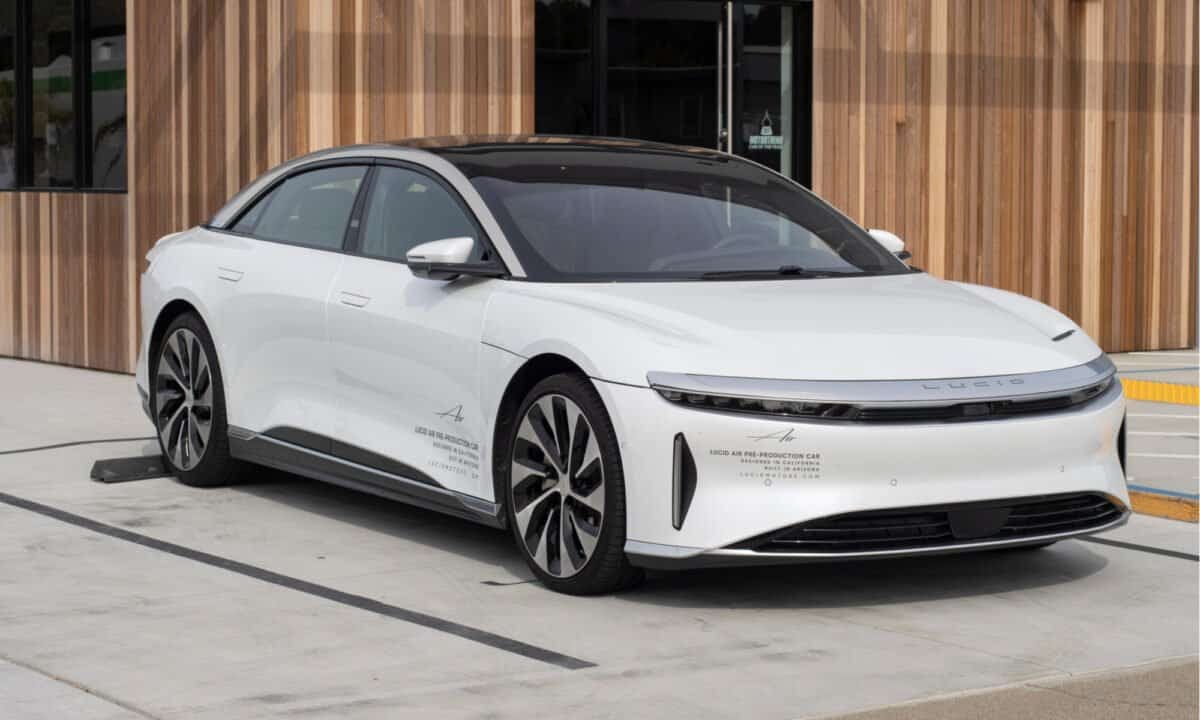
©Tada Images/Shutterstock.com
EV startup Lucid Motors currently only has one model: the Lucid Air. This luxury sedan offers an impressive range of 520 miles per charge and can reach 60 miles per hour in just 2.5 seconds.
Project Gravity, Lucid’s EV SUV, was originally set to be released in 2022. The date has been moved to 2024 and may be pushed back further. Lucid Motors is known for its luxury vehicles and its batteries that are used in Formula E race cars.
14. Rivian: 920 Units Sold
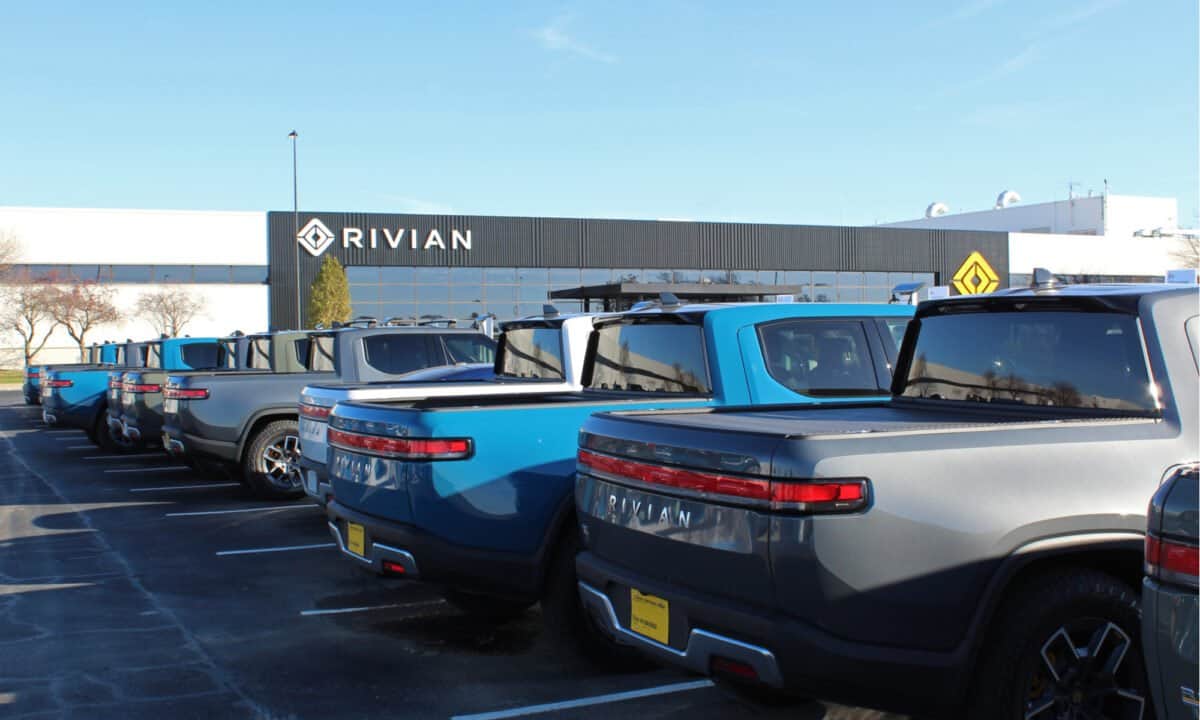
©James Yarbrough/Shutterstock.com
Instead of focusing on luxury sedans, Rivian, one of the most popular car types in the EV industry, has developed more adventurous, off-road EVs.
Rivian currently has two models: the R1S and the R1T. These electric vehicles are hailed as the first electric pickup truck and the first electric adventure vehicle. They boast off-road capabilities, stylish interiors, and design features that blend in more with traditional vehicles when compared with the aggressively unique Tesla models. The R1T was just released in 2022, so you can expect the number of vehicles sold to increase in the years to come.
13. XPENG Motors: 16,000 Units Sold
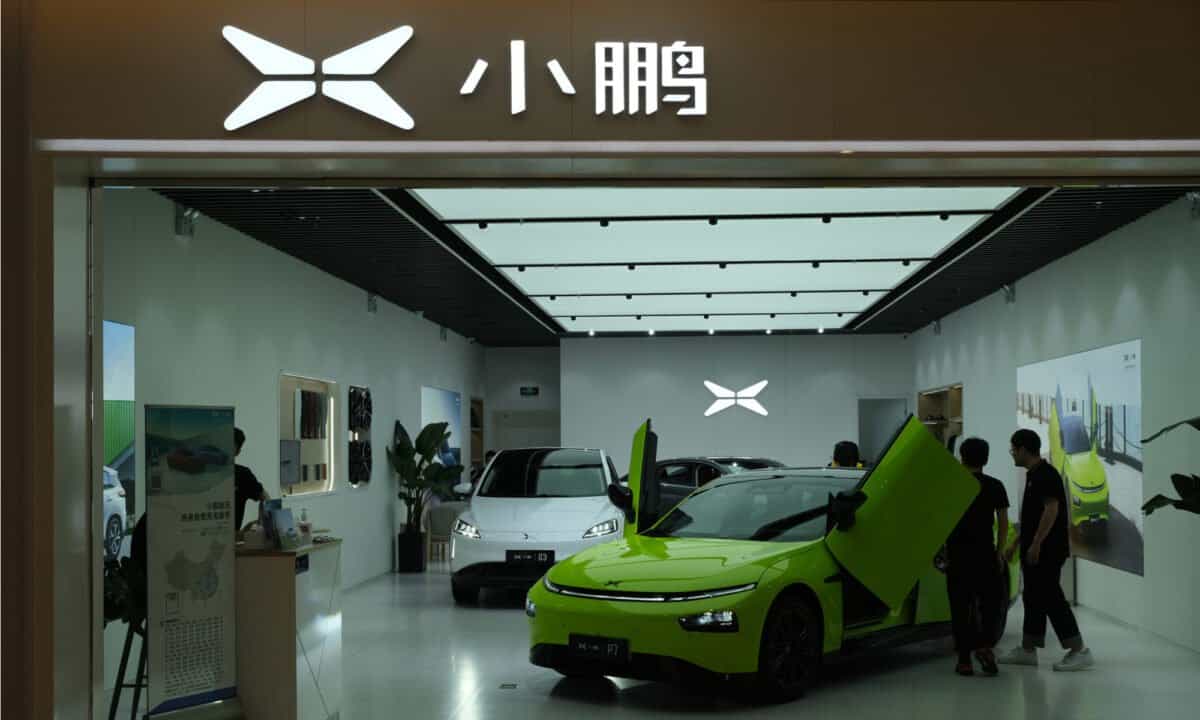
©Robert Way/Shutterstock.com
One of XPENG’s goals is to become a global EV company. The P7, P5, G3i, and G9 are excellent examples of what this Chinese startup can offer. These sedans and SUVs are affordable, practical, and highly popular. The company was founded in 2014 and is worth $16.28 billion as of May 2022.
12. Li Auto: 18,126 Units Sold
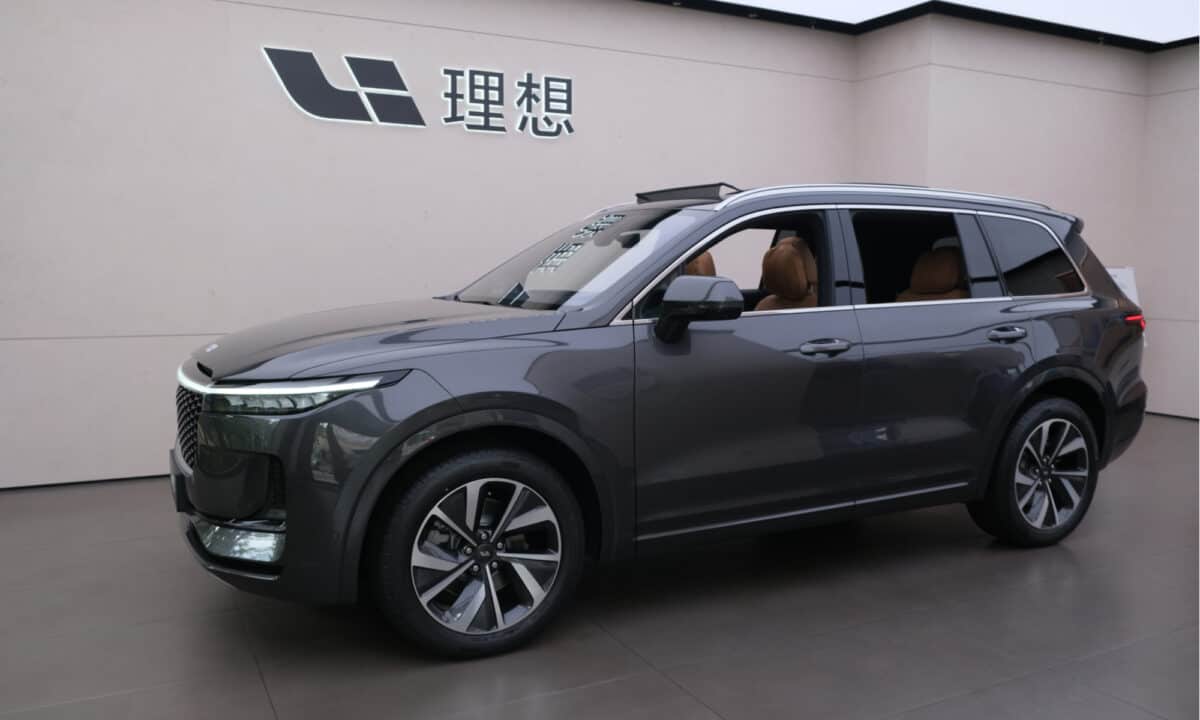
Since 2019, Li Auto has been manufacturing Li ONE, a six-seat luxury EV SUV. Named after its founder, Li Xiang, the company is focused mainly on producing luxury SUVs on the mainland to compete with American alternatives. The company’s net worth is $23,52 billion as of May 2022, making it one of the top three Chinese EV companies, along with NIO and BYD.
11. NIO: 25,000 Units Sold
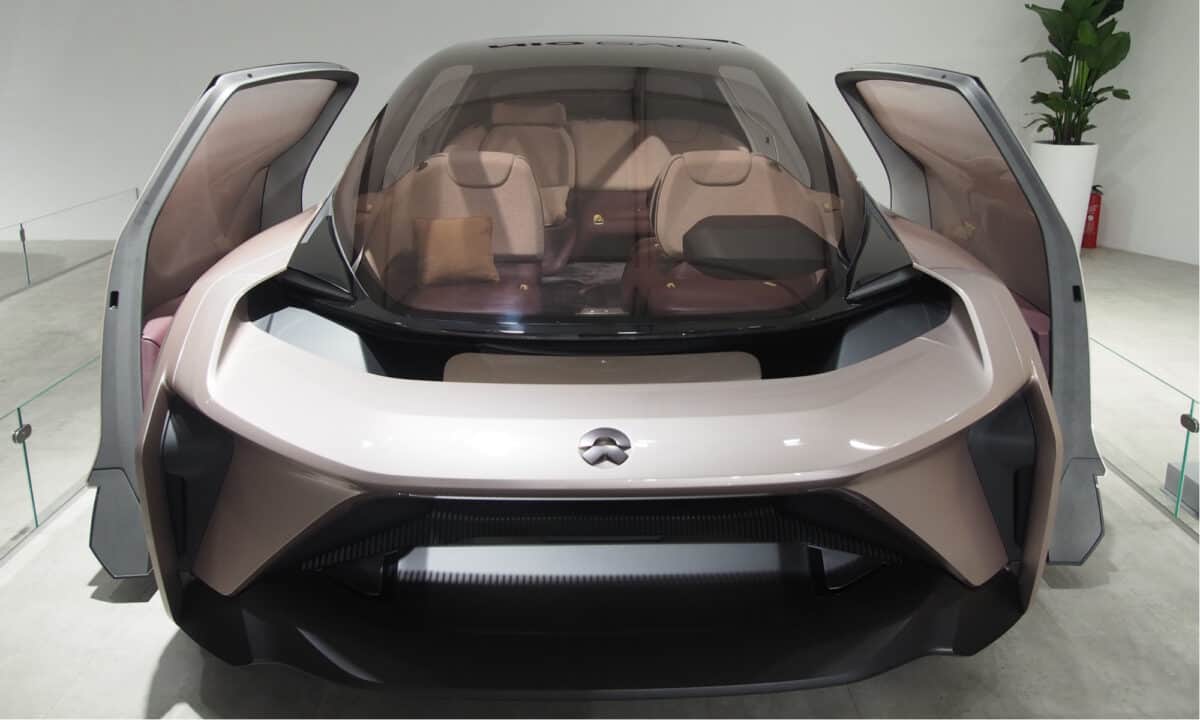
©Carrie Fereday/Shutterstock.com
Shanghai-based company NIO is working to develop autonomous driving and battery-swapping technologies. Known as the Chinese Tesla, NIO also delivers home energy service systems.
The EP9 is one of the fastest electric cars, capable of top speeds of 194 miles per hour. NIO also manufactures the ES6 and ES8 SUVs, the EC6 coupe, and the ET7 and ET5 sedans.
10. Ford: 27,000 Units Sold
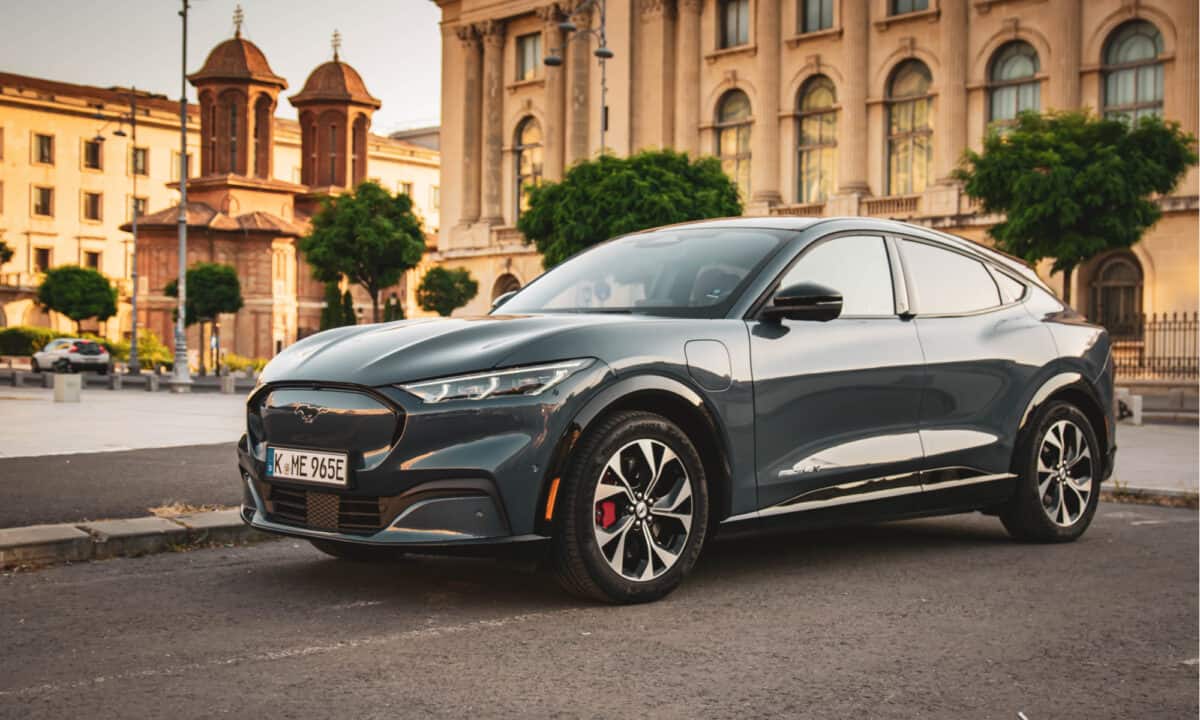
This long-time giant of the automotive industry is a powerful force in making electric vehicles mainstream. In addition to a wide range of hybrid vehicles, Ford has some popular EV models to showcase the potential of EVs.
The Ford F-150 Lightning, Mustang Mach-E, and E-Transit are now available for consumers. This lineup of pickup trucks, sports cars, and utility vans shows that the future of EVs is about more than just luxury sedans. While the 2021 data places Ford considerably below other EV manufacturers, the number of orders in 2022 for all three models means the automaker may be near the top of the list in the near future.
9. Hyundai: 160,000 Units Sold
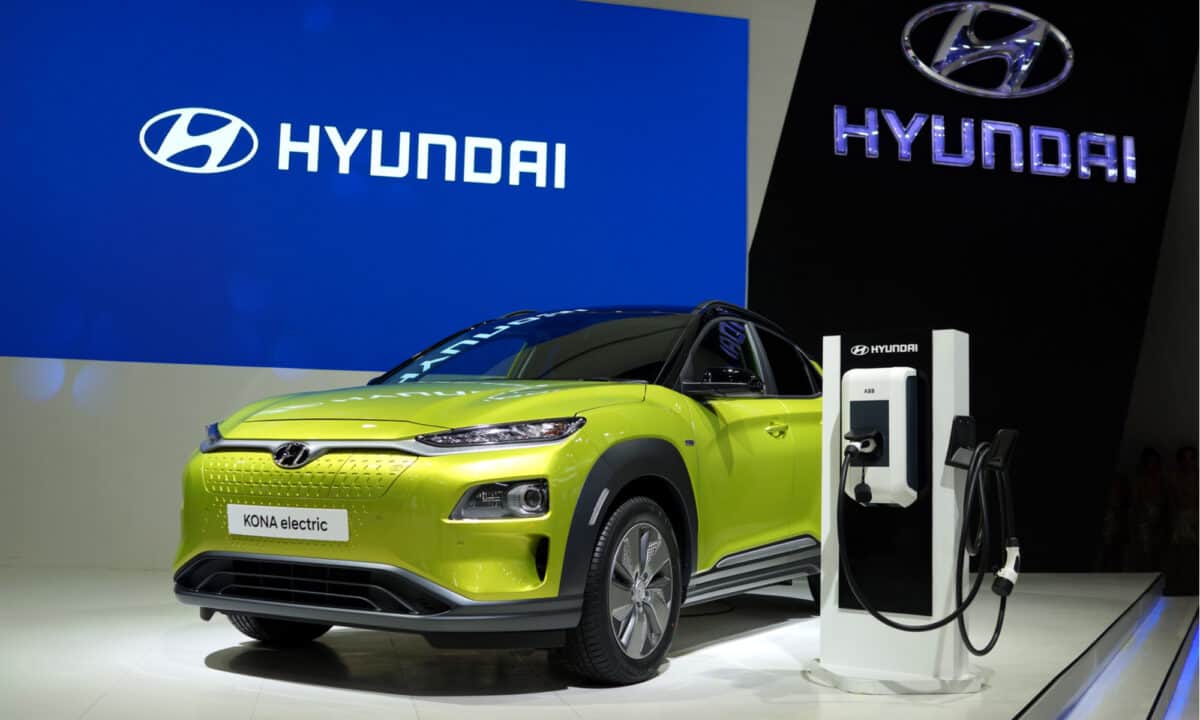
©TY Lim/Shutterstock.com
Hyundai is a leading EV manufacturer and is promising to grow in the near future. Originally founded in 1947 as a construction company, Hyundai has successfully transitioned throughout the years from an engineering and construction company to an automaker and now to an EV manufacturer.
The company offers the Kona and IONIQ 5 EV vehicles in addition to a range of hybrid, plug-in hybrid, and fuel cell offerings. Hyundai reported a doubling of sales from March 2021 to March 2022, even while other categories of vehicle sales dropped.
8. Nissan: 184,033 Units Sold
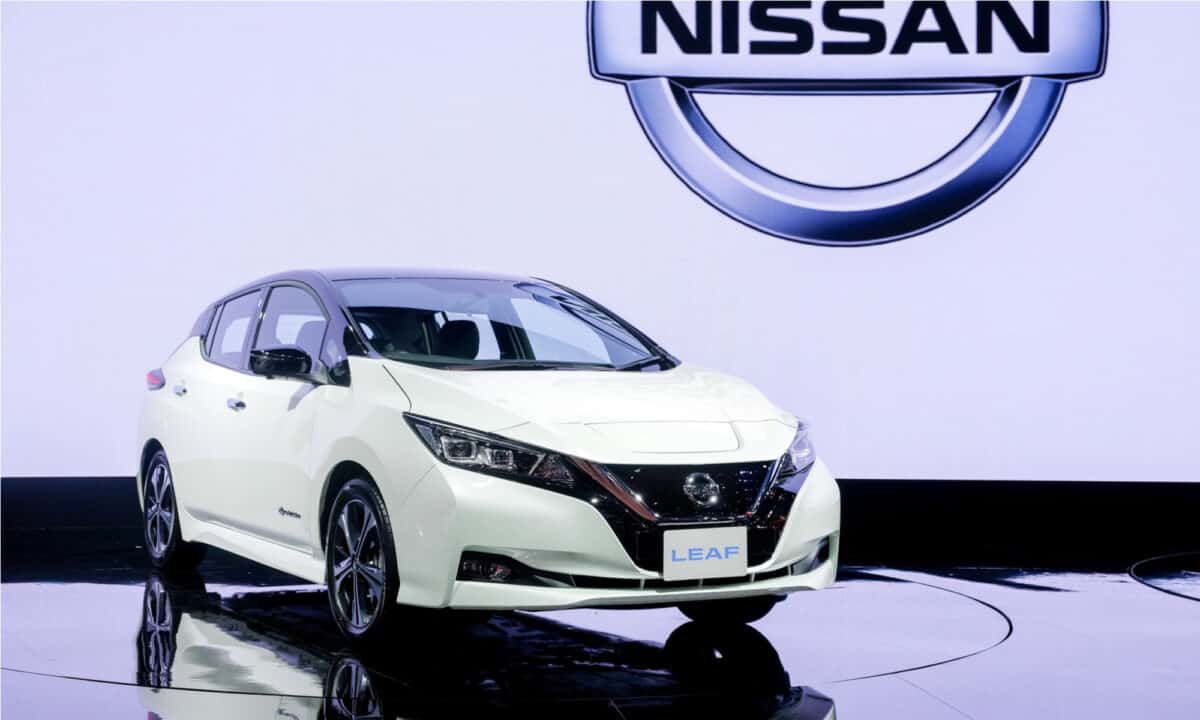
©FeelGoodLuck/Shutterstock.com
Nissan first introduced the Leaf in 2010. The automaker added the Airya to this list as a highly anticipated EV crossover SUV. In 2021, Nissan set a goal to make 40% of its U.S. sales electric by the year 2030.
Both the Leaf and Ariya are popular and affordable electric vehicles. Unlike other automakers focusing on luxury vehicles, Nissan is focused on creating affordable and reliable compact car and crossover SUV models.
7. BMW: 328,316 Units Sold
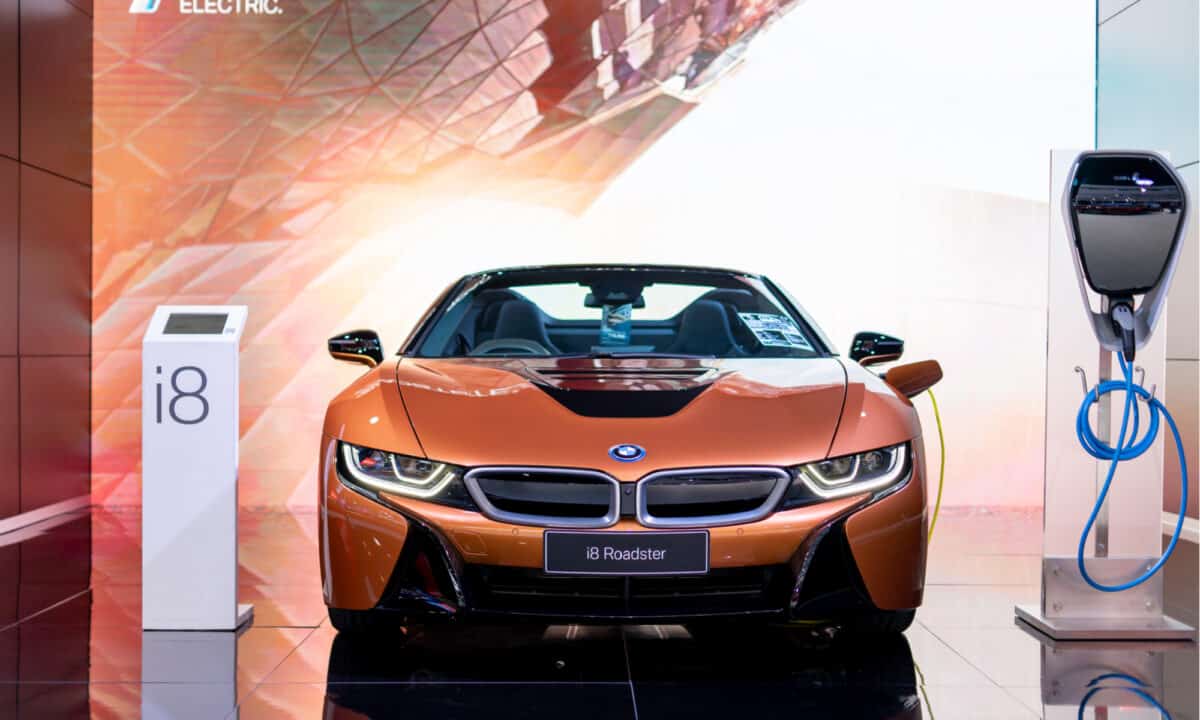
©Superfine Imagery/Shutterstock.com
BMW was a serious player in the industry until newer companies, like Tesla, disrupted the industry. Since then, BMW has continued to see sales growth but has yet to announce a significant push to create a full EV lineup like other manufacturers.
The iX and i4 are two examples of the unique blend of luxury and zero emissions that make BMW EVs so unique. The latest addition, the BMW i7 sedan, is expected to be released in early 2023.
6. SAIC-GM-Wuling Motors: 400,000 Units Sold
Wuling has been manufacturing microvans since 1982. This Chinese company offers many popular shuttles, passenger vans, and food truck configurations, but the Hong Guang MINI EV stands out as the best-selling EV in China. This made it the third best-selling and most popular EV model worldwide.
The secret behind the popularity of this tiny car is its price. At around $5,000, this EV is easily the most affordable on the market. Its production is thanks to a joint venture between Wuling, General Motors, and SAIC.
5. Volkswagen Group: 452,900 Units Sold
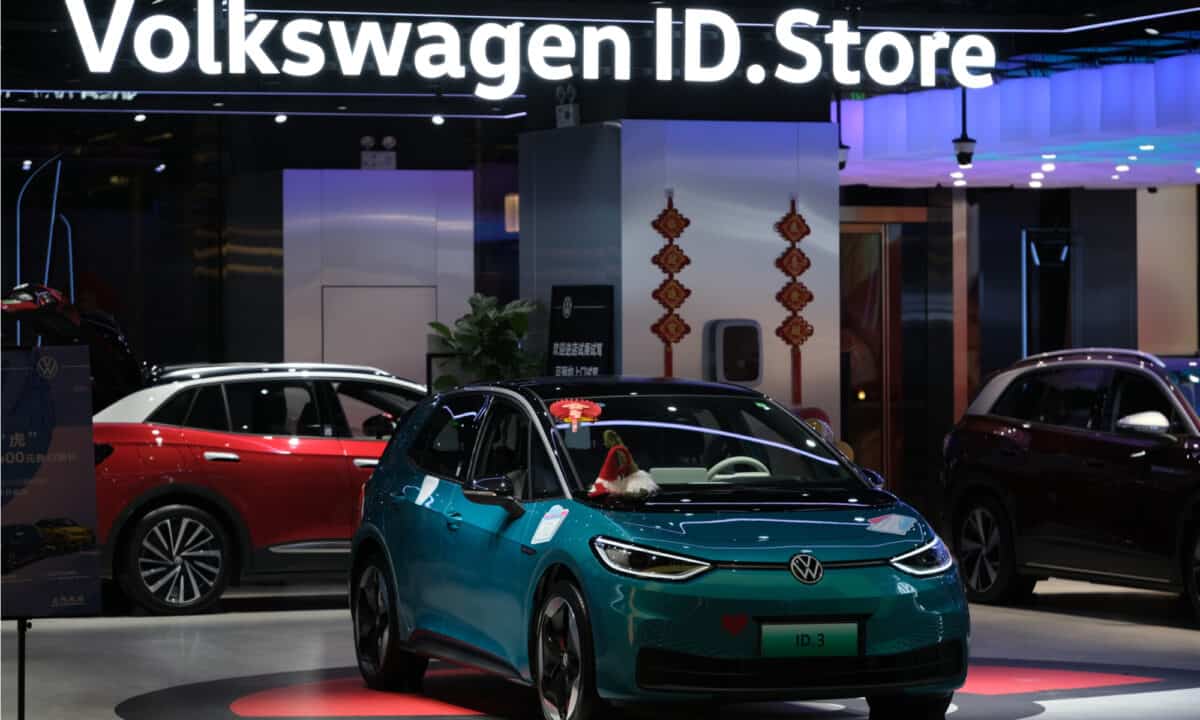
In addition to the e-Golf, which was discontinued in 2020, and the e-up!, which was never released in the United States, Volkswagen Group has an entire line of electric vehicles under the ID name.
ID stands for “Intelligent design, identity, and visionary technologies.” The only fully electric ID vehicle available in the United States is currently the ID. 4, though the ID. Buzz van is expected to be released in 2023.
4. General Motors: 516,600 Units Sold
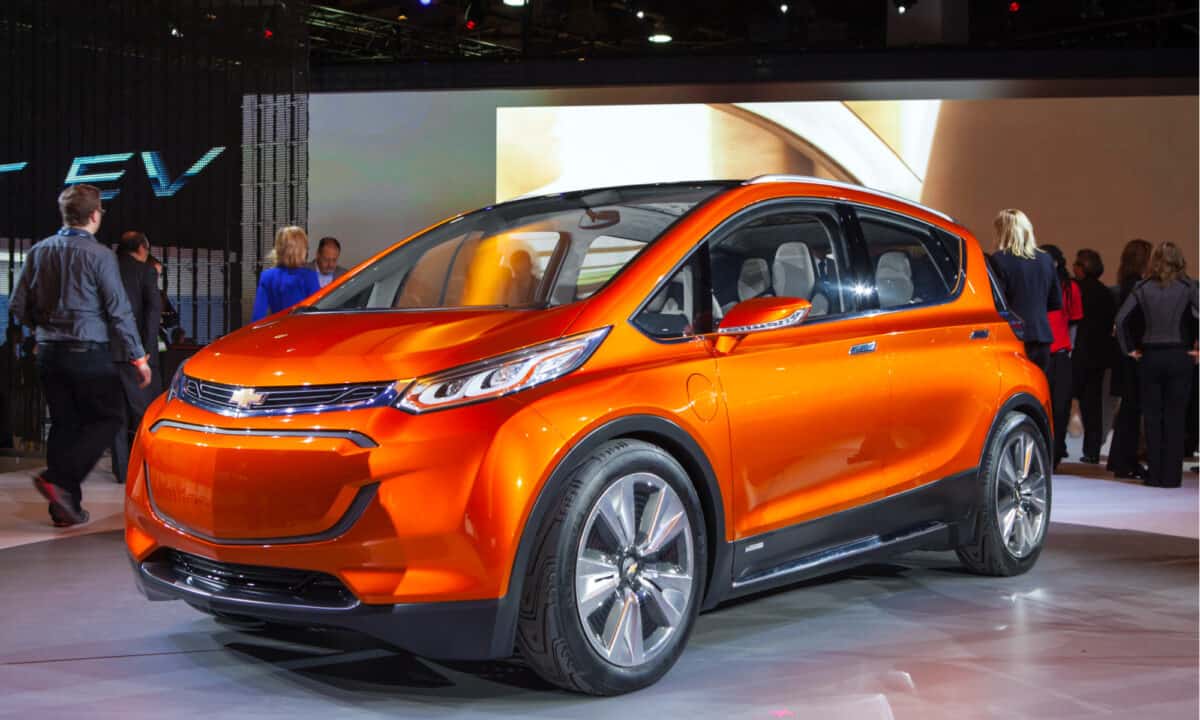
©Darren Brode/Shutterstock.com
The Ultium Platform powers the large General Motors (GM) EV lineup. The company is committed to an all-electric future and has a long-term goal of zero emissions.
Currently, GM only has the Chevrolet Bolt. The company, however, recently invested $35 billion in its goal to become a leader in the EV market. GM is developing more than 30 EV models for production by 2025 or earlier. By 2035, the company’s goal is to have an entire electric lineup.
3. BYD: 593,743 Units Sold
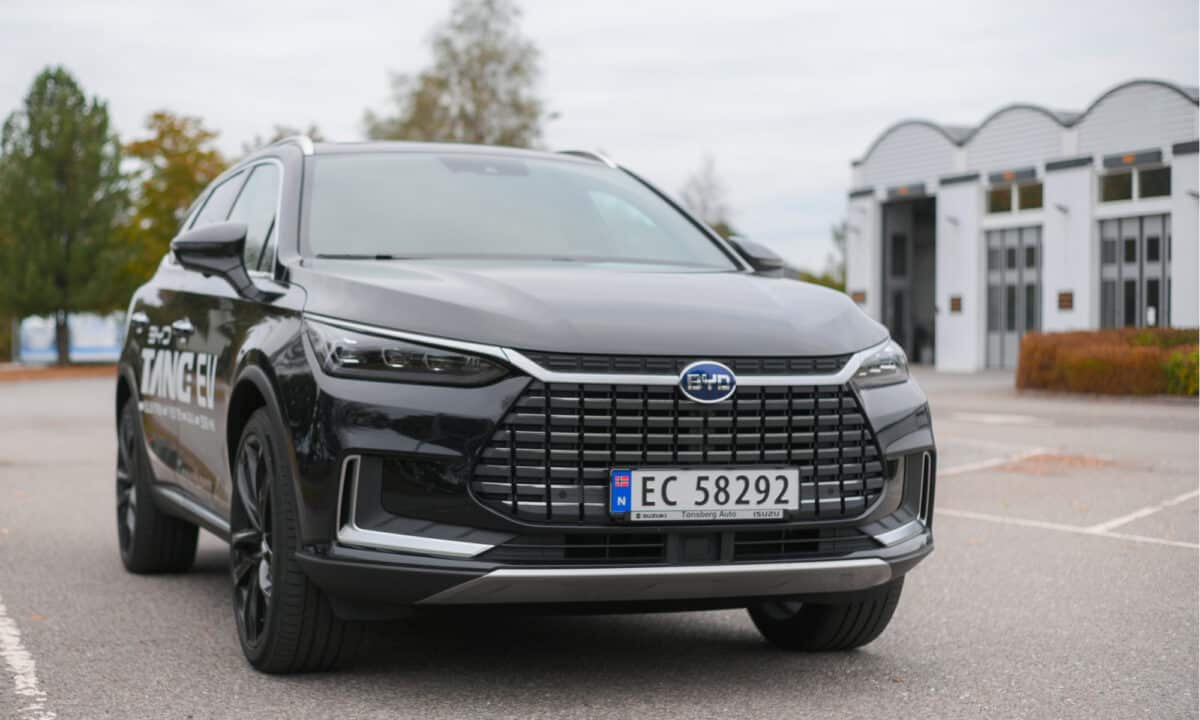
BYD became an automaker in 2003 and has grown to include several zero-emission electric vehicles. They are one of the largest Chinese EV companies by sales.
Models include the Han, Qin Pro, Song Pro, Tang, and Yuan. These EVs range from stylish sedans to spacious SUVs, and all come with at least three trim levels. While BYD is the largest EV automaker by sales in China, it’s the fourth-largest in the world. The company also manufactures electric buses, trucks, and other commercial vehicles.
2. Toyota: 674,450 Units Sold
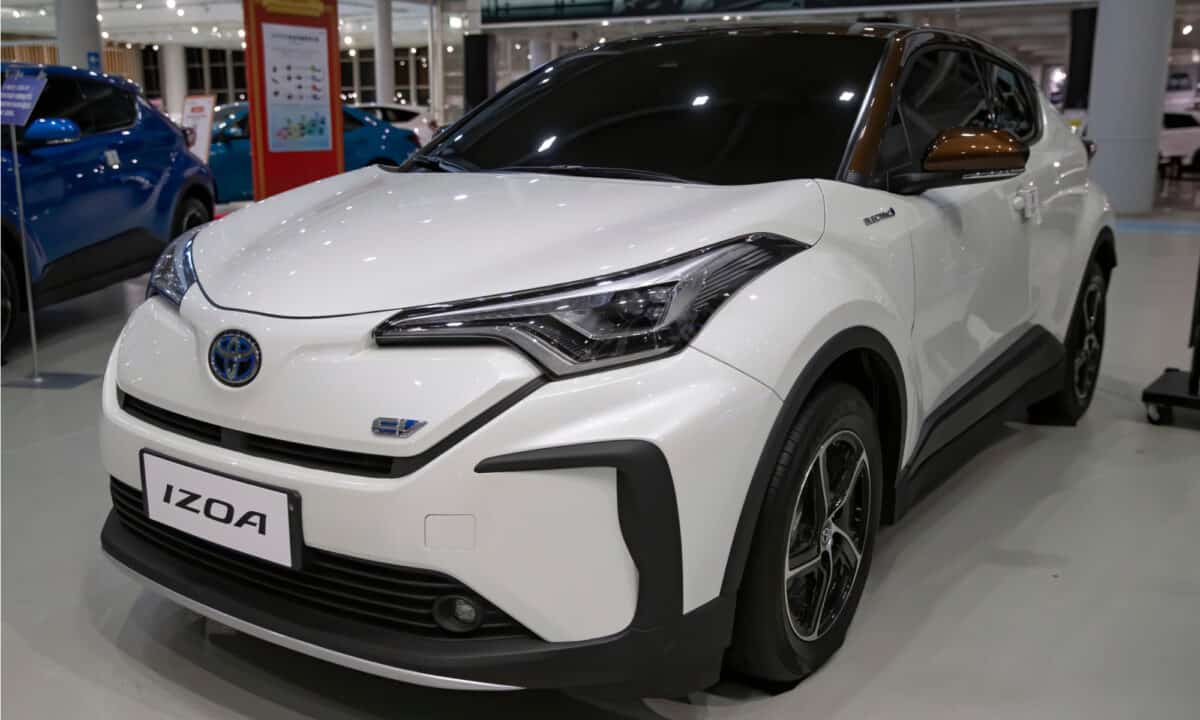
This highly popular Japanese company started manufacturing vehicles in 1933 and has since become a multinational company with a global presence. Toyota introduced the Prius in 1997, which was the first hybrid vehicle to be mass-produced.
Despite its early lead in the hybrid market, Toyota only recently announced its first battery-electric vehicle. The bZ4X is expected to launch in 2022 as a fully electric SUV. It’s set to feature all-wheel drive, a range of up to 252 miles per charge, and represents a long-term plan for Toyota to move into EV manufacturing like many of its competitors.
1. Tesla, Inc.: 936,172 Units Sold
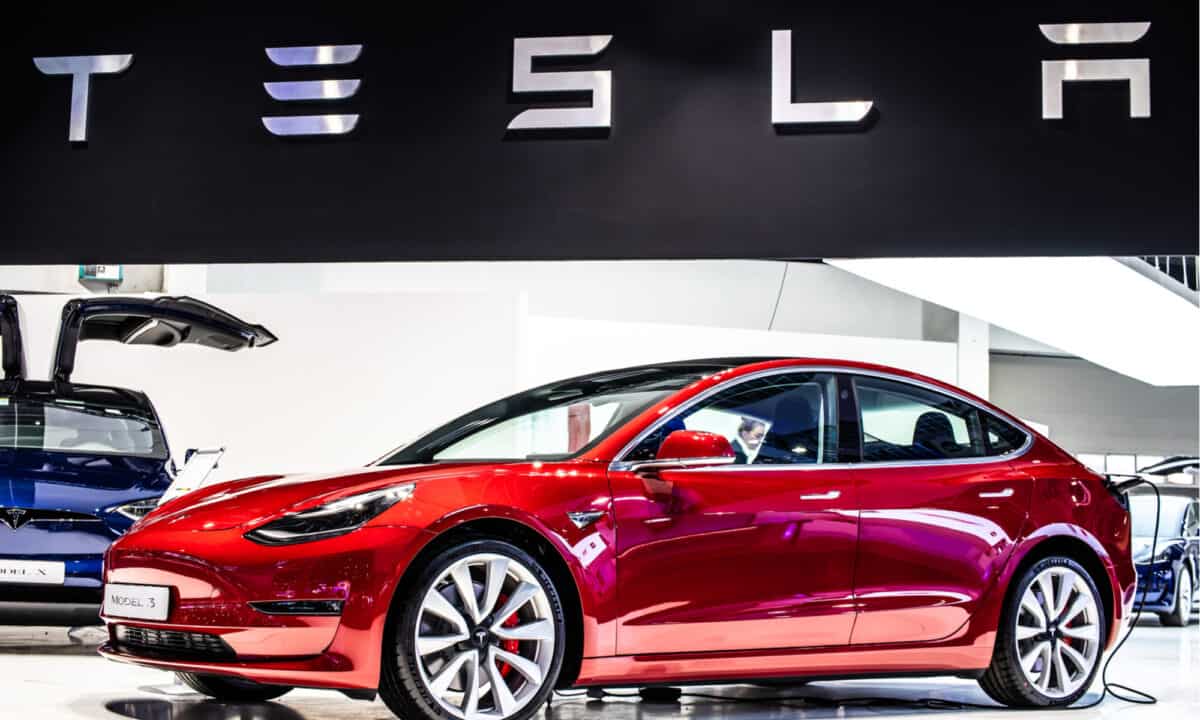
Tesla is practically synonymous with EV technology and production, creating not only models at various price ranges but also introducing unique features and styles into its lineup.
In 2022, Tesla had a net worth of approximately $828.85 billion, making it the most valuable automaker in the world. It also tops the charts in terms of sales per year. The company currently offers four electric vehicle models: Model S, Model X, Model Y, and Model 3. Other models in the works include the Cybertruck and Tesla Roadster, but they are promised to be available in 2023.
Bottom Line: The Largest EV Companies in the World
While Tesla remains a leader in the industry, each of these companies is striving to be a serious competitor in the future of electric vehicles. BYD, NIO, and SAIC-GM-Wuling all have major international support. Rivian, Volkswagen, GM, and others are growing and seeking opportunities to outpace the EV giant.